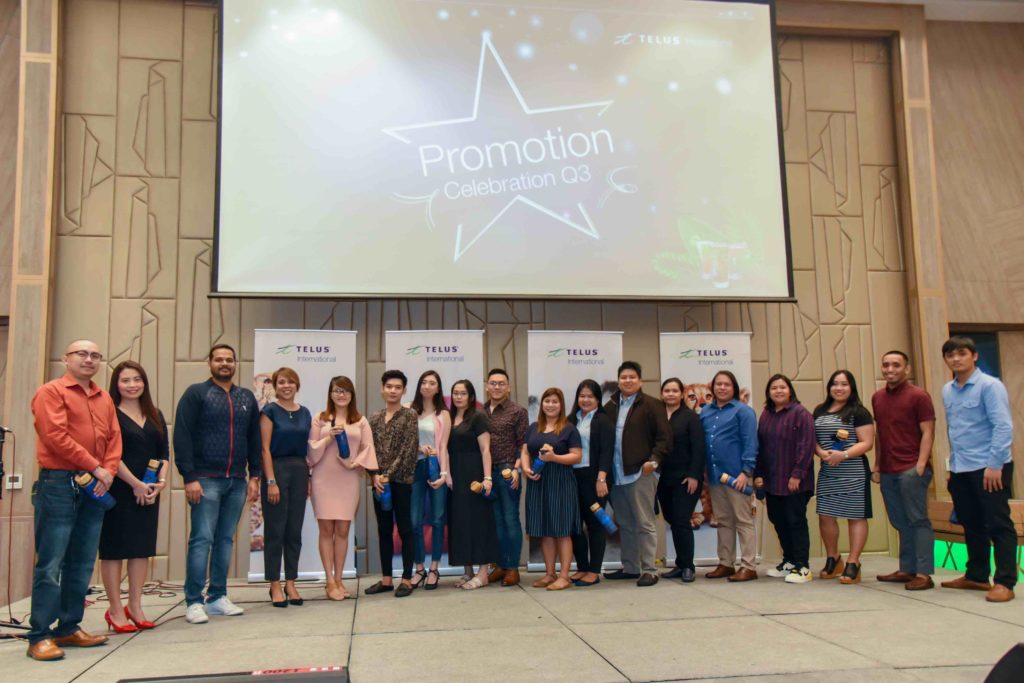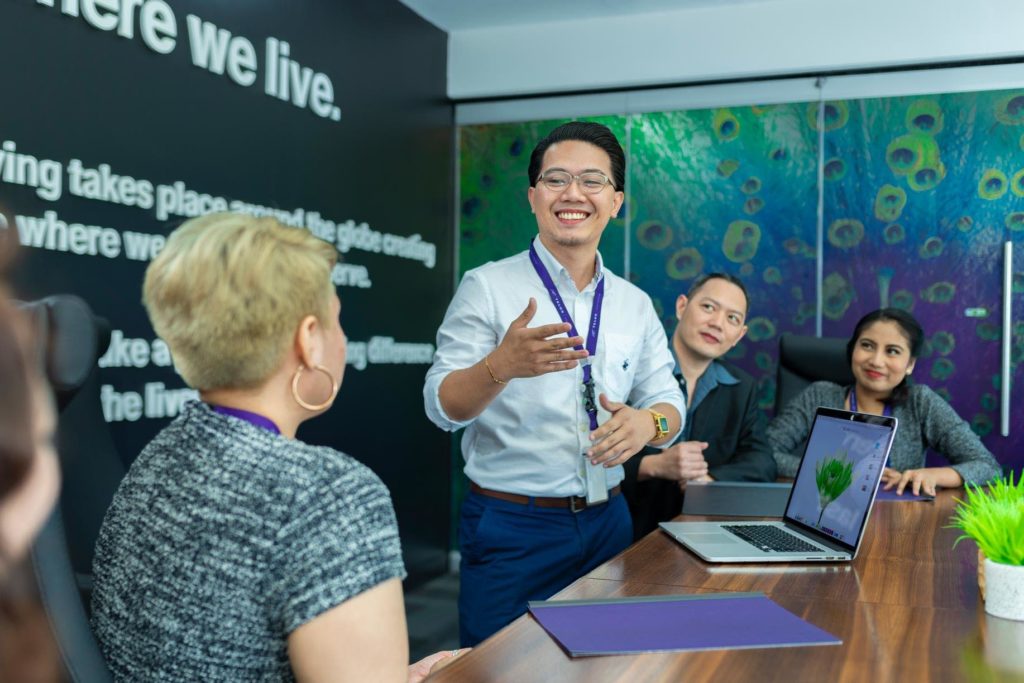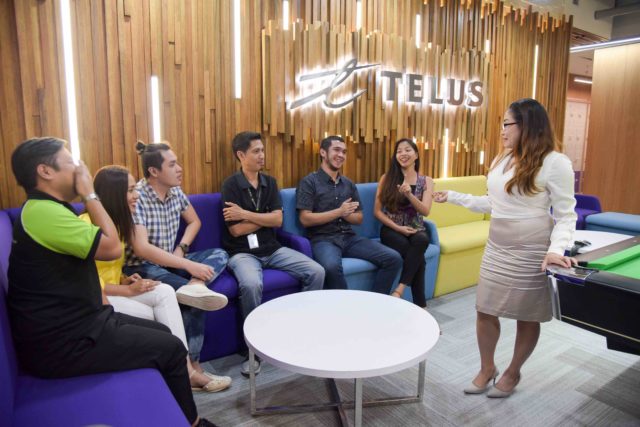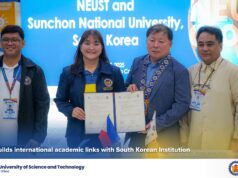For the first time in modern history, we are in an era where five generations work side by side, bringing their own skills and experiences to the table. By 2025, Millennials and Gen Zs will make up more than 50% of the global workforce. Along with this demographic shift comes a different challenge for businesses: how to bridge the generational gap, now that the majority of the workforce are digital natives, and promote collaboration among employees of different age groups.
While generational divides continue to be a challenge in today’s workplace, TELUS International Philippines, a prominent provider of digitally enhanced customer experiences and business process solutions, has found ways to effectively harness its multigenerational workforce. Similar to global trends, more than half of team members at TELUS International Philippines are Millennials, closely followed by Gen Zs. The company’s workforce is doing more than just coexisting—they’re collaborating and learning from each other. This collaboration is paved by the company’s people-first culture, which empowers team members to be themselves while embracing spirited teamwork.
“We welcome people of all ages, genders, and races, and we’ve always valued the power of intergenerational collaboration within our organization,” Anne Muñoz, TELUS International Philippines Country Vice-president stated. “Aside from fostering diversity and inclusion, we actively create opportunities for team members, ranging from college level, fresh grads to seasoned professionals with decades of experience, to collaborate, enabling a broader exchange of ideas and an enhanced talent acquisition and retention strategy.”
As highlighted in a recent study by The World Economic Forum, companies that embrace a multigenerational workforce gain a competitive edge, including diversified skills, a stronger talent pipeline, increased resilience and productivity, and better retention of experience and knowledge. To reap these benefits, it is crucial to adopt the following strategies, which the organization has found to be particularly effective: (1) cultivating intergenerational collaboration and skill-sharing; and (2) facilitating open communication.

Nurturing a culture that fosters peer learning and coaching
Creating a collaborative workplace is essential, especially for Gen Z, which values teamwork. Such an environment transcends generational boundaries, instilling a sense of value and empowerment in individuals from diverse age groups who have much to learn from and share.
For instance, TELUS International Philippines regularly hosts INsessions, where team members who possess expertise in their respective fields, regardless of age or tenure, can share their knowledge, skills, and experience with others.
Juliet Aguillon, Gen Z security analyst, highlighted the positive impact of this initiative, stating, “The learning sessions with younger team members opened us up to embracing new technology and innovative ways of working.” Anthony Asentista, Gen Z applications development project lead concurred, emphasizing that their generation’s creativity and adaptability, especially in utilizing emerging technologies like AI and new social media, strengthen the overall team’s capabilities and performance.
In parallel, Millennials and Gen X have helped Gen Z in expanding their leadership skills and managing motivation. Leadership learning sessions are regularly held together with mentoring initiatives such as one on one sessions to support each team member. Doing this helps in managing team members’ morale and ensuring that everyone is given the help they need in overcoming any challenges they face.
“I appreciate that we regularly hold huddles to check in on how we’re doing at work. It’s always exciting to learn from my older teammates because their experience in handling different situations and their insights into best practices enhance my skill set and help in my career development as well,” said Harrison Lantoria, Millennial general analyst.
Brandi Michelle Anderson, Millennial operations manager, echoes these sentiments, “I’m so glad I’m able to pick up new ideas from the younger generation, especially since they are more outspoken when it comes to sharing what they know and giving their thoughts on how to improve our ways of working.”

Bridging generational divides in the workplace
To manage the gaps across generations, TELUS International Philippines actively solicits feedback from each team member, allowing them to voice their concerns and share insights. The HR team emphasizes the importance of prioritizing factual data over assumptions about preferences based on age or culture.
“Gathering feedback and gaining diverse perspectives and insights from various groups of people enable us to continually enhance our team members’ daily experience here,” said Muñoz.
Balancing diverse work preferences and communication styles across generations is equally important. The company achieves this through strategic communication management, including the use of the internal social media platform, Cosmos, for work-related discussions as well as team members’ personal interests and passions.
Open communication is highly emphasized, as Asentista pointed out, “Having regular and open lines of communication with my team lead greatly contributes to my professional development. Discussing areas for improvement and strategizing ways in which my immediate superior can assist me in achieving my career goals has been invaluable.”
Career advancement at TELUS International Philippines is based on skills, leadership, and experience versus solely on years of service, reflecting a career advancement system that extends beyond tenure-based promotions. “I have direct reports that are older than me but I can definitely feel that they respect and trust me despite our age difference. It’s great that promotions are merit based and not solely influenced by tenure,” shared Asentista.
The company’s inclusive culture has led to a thriving environment where knowledge flows freely, skills are enhanced, and creativity knows no generational bounds. Muñoz emphasized that open communication, diverse career development paths, and merit-based advancement empower all team members to contribute to the organization’s continued growth.
Intergenerational collaboration is a dynamic opportunity that transcends age differences. It’s about fostering a workplace culture where every team member, regardless of age or tenure, feels valued and empowered. This fusion of talents, ideas, and experiences drives TELUS International Philippines’ continuous success and innovation.





